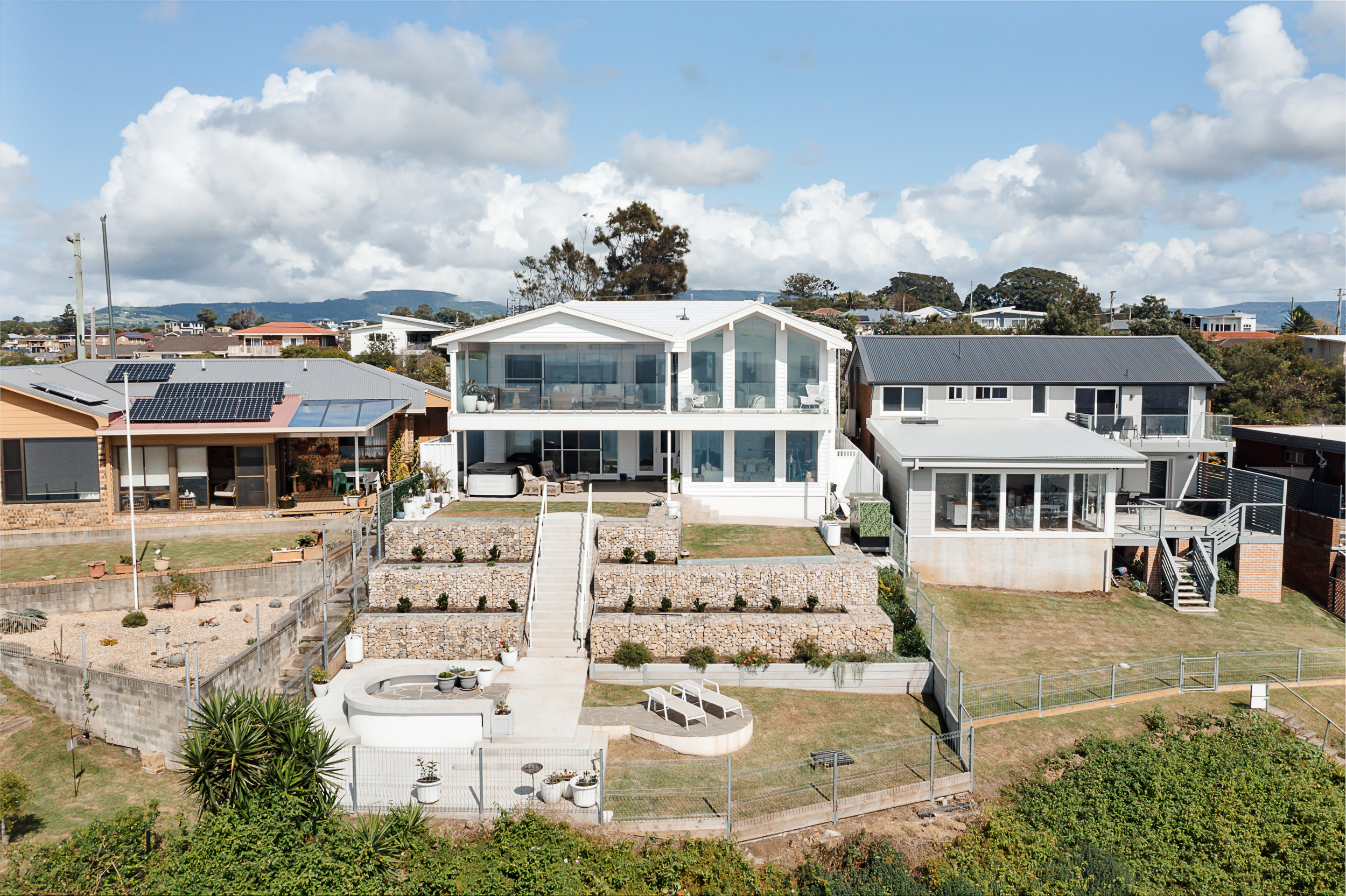
There’s nothing Australians love more than real estate, and buying a home is one of our biggest milestones, for good reason. As Darryl Kerrigan once famously quoted, "A man's home is his castle."
Now, let's take that a step further—building your castle. For those fortunate enough to do it, it’s not just a milestone, it’s one of the biggest financial and emotional investments you’ll ever make.
As such, with so many builders out there, it makes sense to practice due diligence when choosing one for your project. However, making the right choice isn’t always straightforward. It can be easy to overlook the red flags and agree to an unclear contract, and the truth is, plenty of pitfalls can derail your dream home. But don't stress, we’ll walk you through how to avoid common mistakes when choosing a home builder so you can build your castle with confidence.
Arguably, the most common mistake is choosing a builder simply because they offer the lowest price. We've all been guilty of this when buying products or services. It’s so tempting, especially when budgets are tight. But, as you've likely heard before, cheaper doesn’t always mean better.
In many cases, a low quote can be a sign that corners will be cut on materials, workmanship and project management. As a result, what looked like a wise choice upfront can quickly lead to unexpected costs, delays, and an all-around frustrating building process.
Another red flag with a low quote is the tactic of luring you in with a cheap price, only to hit you with add-ons later. It’s a common strategy, and one that can seriously blow out your budget. Much of this comes down to what is (and isn’t) included in the contract, which we’ll cover shortly.
In short, investing in a builder with a solid reputation and transparent pricing is worth it to avoid costly delays and financial strain later on.
It might sound obvious, but failing to check whether your builder is properly licensed is also a common mistake.
Many customers assume a slick website or glowing reviews are enough. No matter how professional they appear on the surface, always check the fine print to make sure they’re legally allowed to carry out building work in your state or territory. Without a licence, they are likely uninsured, which means that if anything unfortunate were to happen, it falls on you.
Each state in Australia has its own building authority where you can verify licences to ensure compliance.
For example, NSW Fair Trading, the VBA in Victoria, or QBCC in Queensland all offer online licence checks. All it takes is five minutes to confirm, and this can save you from major legal and financial headaches during the construction process.
Not all builders are the same, and not all of them will be the right fit for your specific project. You must match the builder to the project. One common oversight is assuming that if a builder has a flash, high-value display home, they must be amazing across the board.
If you're building a custom home on a sloped block, it doesn't make sense to hire a builder with experience only in home renovations. This kind of build requires very specific expertise and experience.

So, don't be afraid to ask the right questions:
By ensuring your vision aligns with their experience and encouraging a collaborative approach, the process will be smoother.
This is a big one, and it catches out more people than you might think. Building contracts are long, detailed, and packed with legal language. However tempting it is to skim over the fine print, it can lead to major headaches (and costs) down the line. Look out for hidden clauses, unclear timelines, vague allowances and ambitious project milestones.
Unfortunately, some builders intentionally create confusion to leave you exposed to unexpected costs. Always take the time to read the contract thoroughly. Better yet, hire a solicitor, one who deals with building contracts, and have them review it before you sign. A small investment upfront can protect you from major risks later and costly mistakes.
Reviews can offer valuable insights into how a builder treats clients after the contract is signed. Do not solely rely on the rating; take time to read and recognise patterns in the feedback. If there are consistent complaints about communication, quality workmanship or unexpected costs, then consider these red flags.
Check multiple sources, such as:
This will give a balanced picture. It’s one of the easiest ways to spot potential red flags before you commit to the project cost.
If you want to take it a step further, ask to visit a few of your builder’s completed projects. There may even be current ones under construction, ideally new builds similar to yours. Photos on a website can be curated, but seeing the work in person gives you a much clearer picture of the construction quality and site management.
Pay attention to the finishes and how the site is maintained. Is it tidy and well-organised? Do they use high-quality materials and energy-efficient appliances? Good use of natural light and storage space?
Perhaps you can even speak to the client to see how happy they are about their experience and construction costs. A builder confident in their work will usually be more than willing to show it off.
A lot of stress during a build comes down to poor communication, especially around timelines. That’s why clarity around your builder’s construction schedule from the outset is so important. When will key stages be completed? What factors could cause project delays? How are those delays communicated?
Just as important is knowing how often you’ll receive updates and who your main point of contact will be. Will there be regular meetings and a collaborative process? A good builder will have a clear process in place, sometimes even a calendar to reference, and keep you informed every step of the way. Clarity upfront can go a long way in avoiding potential conflicts later.

We hope we've helped inform you on choosing the right builder. Just to briefly recap, look for a licensed and experienced professional with proven results, strong communication skills, transparent pricing, and positive client feedback.
Word of mouth is still one of the most reliable ways to find a quality builder, so don’t hesitate to ask friends, family, or neighbours who they’d recommend. But even then, don't make the mistakes discussed here.
Ready to build with confidence? Get in touch with A Class Building and Construction and take the first step toward a smoother, stress-free building journey.
Check their financial stability, track record, and make sure they’re insured and licensed through your state’s building authority to avoid choosing the wrong builder.
Look for a licensed, experienced builder with strong reviews, transparent pricing, and clear communication to ensure you're on the same page.
The pre-construction phase is often the hardest due to a significant investment in design decisions, approvals, and contract negotiations.
Evaluate your budget, builder credentials, timeline, design needs, site conditions, and contract details before starting with a reputable builder based in your area.